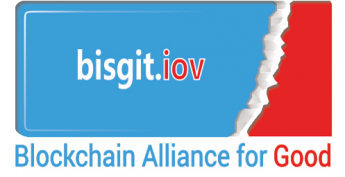The issue of how to value the impact that universities have on students is a major bone of contention. Mainly measured in terms of ‘value for money’, a number of methods and a plethora of metrics are available, but each one gives us only one aspect of a much more complicated picture. In this blog some of such ways of valuing are reviewed so to argue that a more comprehensive value system can be put in place to the benefit of students, universities and the wider community.
Just future earnings?
The value and currency of a university degree has been under question for a while and more so since the rise in tuition fees. Common ways to put a ‘price tag’ on the future gains of a university degree is mainly calculated through the Destinations of Leavers from Higher Education (DLHE) survey. The survey focuses on the number of students gaining graduate employment six months from graduation. While future earnings can be a measure of the impact of gaining a degree, there are a number of weakness in just relying on them. The first is that gaining employment within such a short time is dependent upon the wider economic context. The second is that there are well-established patterns which favour higher initial earning for students from some universities. Third, the survey does not take into account the choices that individuals make some of whom might decide not to seek graduate employment as a career progression. Fourth, there is a possible mismatch between how some types of job, mainly in education and social care and mainly carried out by women, are labelled as graduate employment and the knowledge and expertise they actually require.
Just satisfaction?
Another common and no way less contentious way to measure the benefits of a university experience is through the National Student Survey. The survey, composed of 27 questions, is designed to elicit students’ views on the teaching and learning they experienced (http://www.thestudentsurvey.com/content/NSS2017_Core_Questionnaire.pdf). Yet, this covers only one aspect of a university experience and does not provide us with evidence of how the experience has had an impact on the student while at university or beyond. Another limitation of the survey is that ‘satisfaction’ is a at best a proxy and at worst time bound. While this argument does not diminish the argument about satisfaction and personal experience, it challenges the limited set of evidence such a survey can elicit. More importantly, the survey can be of used to rank universities, but how does it enable the individual student to show the full range of experiences she or she was involved in and their benefits?
The points above pose a question of how to ‘measure’ the value of a university degree beyond the seemingly tangible future earnings or reductive satisfaction surveys.
The comprehensive university experience: making the intangible count
There is clearly more to a university experience than the grades one gains and the content one learns. There is more to how a university experience impacts on graduates than just future earnings. As valuable as these two criteria are, they do not capture a number of so far intangible aspects of a university experience. For example, we value voluntary work, or support for the internal and external community, or simply being supportive of colleagues and fellow students. We also value the effort we put in achieving what is important to us. We also value showing the hard and soft employability skills we learn and apply. Yet, although valuable, such activities are intangible and therefore difficult to capture in a CV, at best, and lost, at worst. There are of course ways to make such experiences tangible, such as awards, certificates, prizes. But do they actually make what we value and the value we can bring visible, tangible, concrete?
One metric to capture value/s
Capturing the intangible contributions we make and the way in which being at university contributes to adding value requires to think differently. It requires to think differently about what is of value, how to assess it, and how to trace the way in which value was co-created through the many experiences to be had while at university. Combining both hard metrics and the Personal Value metrics, the CCEG Blockchain UN Lab is developing a method to make visible the transaction and worth of intangible and non-financial values using a unique combination of Blockchain Technology and the Social Earnings Ratio. The aim is that of developing objectively derived indicators and metrics to combine a variety of experiences, contributions and gains to show how being at university contributed to personal growth while also contributing to the growth and wellbeing of the university and wider communities. Through the Blockchain technology, the CCEG Blockchain UN Lab is seeking to make visible the journey through which that growth has occurred so to create a personalised passport as a testimony of value added, value for money and, most importatnly, value creation.

But I must say that it is debate that change things. Anyway, very good article, thanks for the share….
Silent Bob Coat
I am amazed by the way you have explained things in this article.
Cobra Kai Leather Jacket
I really enjoyed this site.
Yellowstone Apparel